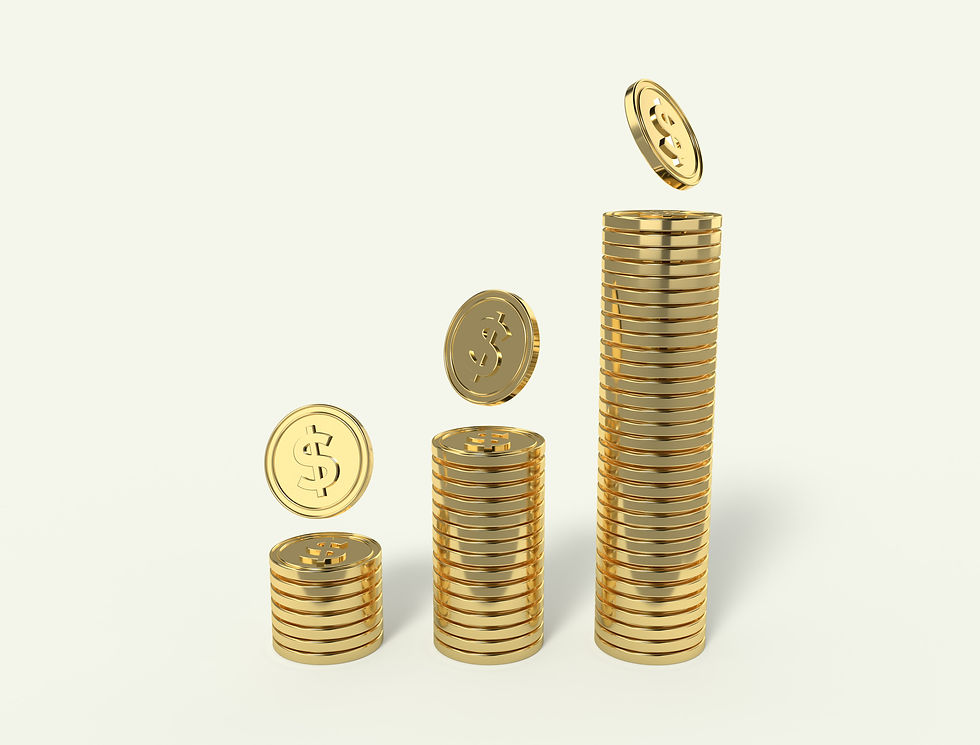Q1 2020: What You Don’t Know, Won’t Hurt You
- Marcus Crawshaw

- Mar 5, 2020
- 4 min read
Updated: Sep 27, 2022
“What You Don’t Know, Won’t Hurt You” … Apparently, Not If You Are The Stock Market
As of March 5, 2020, the stock market (as measured by the S&P 500 Index) has registered just about a 7% decline for the year.** This is roughly 11% below the all-time high set on February 19th**, and therefore considered a correction by the powers that be… given the drop of more than 10%. For those of you keeping score, a 20% decline will trigger the dreaded bear market.
The question on top of nearly every investor’s mind is not so much about what or why this has happened, but more about when is it going to end? The “unknown” has commonly been the cause of rapid drops in stock prices and continued volatility. Stock market investors rarely favor the unknown…especially if you can’t see further than your wrist. And the longer this unknown persists, the more it can fester in the short-term investor’s mind leading to emotional investment decision making…which is not good for anyone!
We are not breaking news here. Investors have two major concerns on their minds. First, the Coronavirus and its spread across the globe. For our purposes (investing), the question is how much the spread of this virus (or maybe better termed at this point… the fear of the spread of this virus) will impact the global economy. At the outset, the fear has closed factories, cut air travel, canceled tradeshows, closed theme parks and everyday businesses (mainly in China and now Italy).
Without knowing when authorities will get their hands around this virus, many investors will continue to predict the worse. If containment/resolution doesn’t come soon enough, companies may start losing business, employees could lose their jobs, fiscally irresponsible companies may go out of business, and these events will lead to a recession. That’s the cliff notes version of the worst-case scenario.
We are not economists and we definitely are not members of the WHO (World Health Organization), so we will keep our predictions to ourselves. However, we will share our thoughts on how this impacts our long-term investment projections.
As you may have imagined, it doesn’t. The chart to the right depicts the ability of economies/stock markets to bounce back from disease outbreaks within six months. That being said, when we say long-term, we mean 5+ years… so needless to say, the virus doesn’t really impact our investment approach.
The second major concern for investors was/is the real possibility that Bernie Sanders could get the Democratic nomination. This cloud lifted somewhat this week with Joe Biden’s solid showing on Super Tuesday, leading many to believe he will represent the Democratic party this November. Mr. Biden is more moderate and let’s just say Mr. Sanders is less than pro-business. Prior to Tuesday,

it was very clear (not discussed too much on the squawk box) that stock market investors were a bit spooked at the possibility of Mr. Sanders on the ballot.
Just as we are not members of the WHO, we have never been a guest on Meet The Press as we possess very little political insight. That being said, we do know stock markets have risen and declined under both Republican and Democratic leadership. So, regardless of who resides at 1600 Pennsylvania Ave come January 2021, we’ll keep our focus on the companies in which we invest and look to achieve our long-term results.
Yes, certain industries may bode well under certain Presidents and decline under others… but for the entire stock market to correct due to the specter of an unfriendly to business President taking office… that’s a little, well… short-sighted! Especially nine months prior to election day.
One final thought… when the stock market rises nearly 30%, as it did last year, complacency can and does set in. Even without the virus concerns or the fast-approaching presidential race or any other issue coming our way (i.e., impact of such low-interest rates), the stock market was due for a correction. Stock prices do not go straight up. It just doesn’t work that way.
A year like 2019 makes investors forget that we invest in the stock market willing to accept the short-term volatility in order to receive the long-term gains. Gains that are historically the best out there for the common investor. We know full well that stocks as a whole do not go up 30% every year and vice versa. What we do know is that over time the stock market returns between 8 – 10% on an annual basis. The total return of the stock market for the past 5 years was 47% (or 9%+ annually).**
The stock market of 2020 will take its course. Where it finishes the year is anyone’s guess; we do not know and will not venture a prediction. What we do know, as long-term investors, we’ll pick our spots to buy discounted securities as we firmly believe in the long-term viability of our economy and the select companies in which we invest.
Till next time…
Marcus
**Stock market return figures are for the S&P 500 Index and from Yahoo!Finance (finance.yahoo.com)
Note: Nothing contained herein this letter should be considered to be investment advice, research or an invitation to buy or sell any securities.





Comments